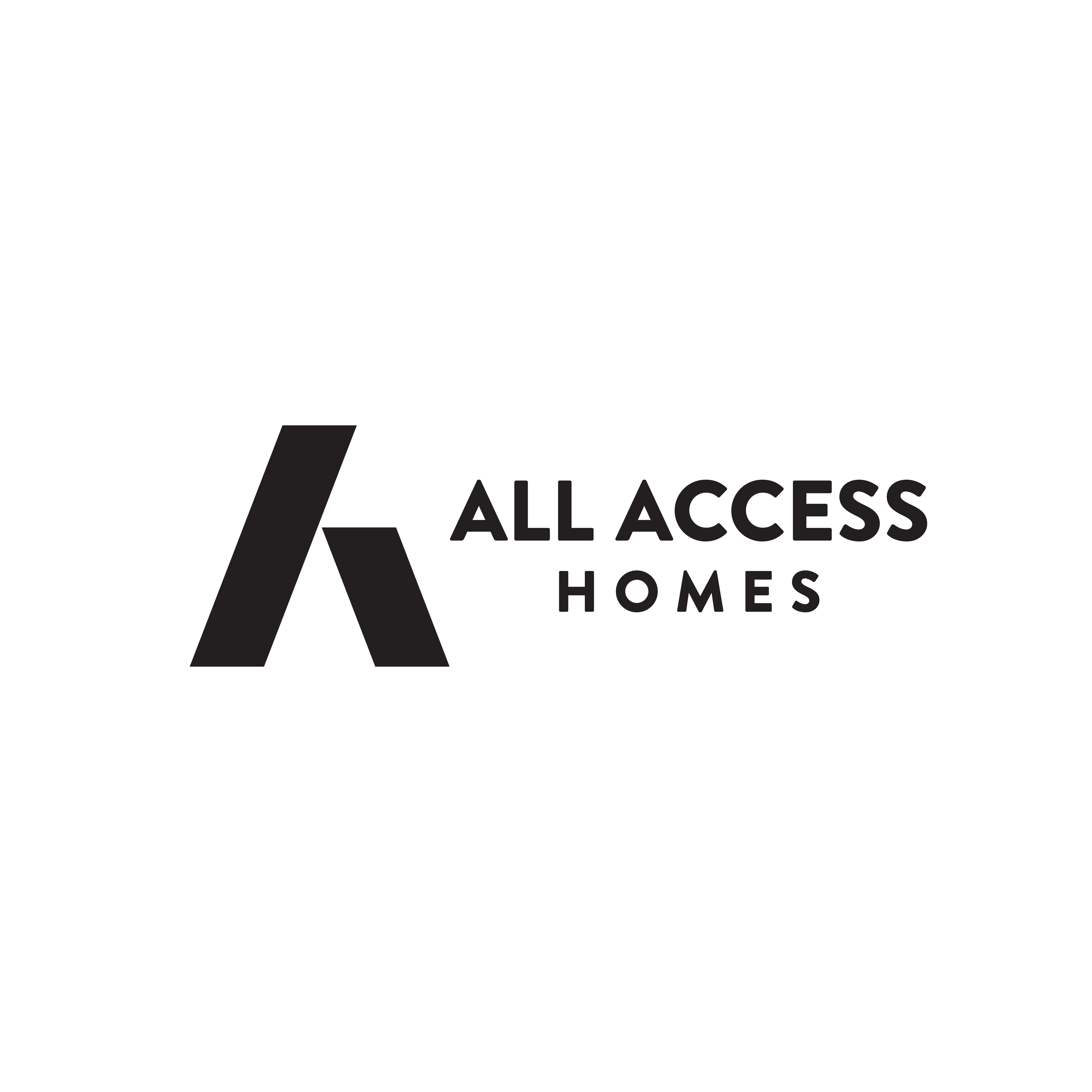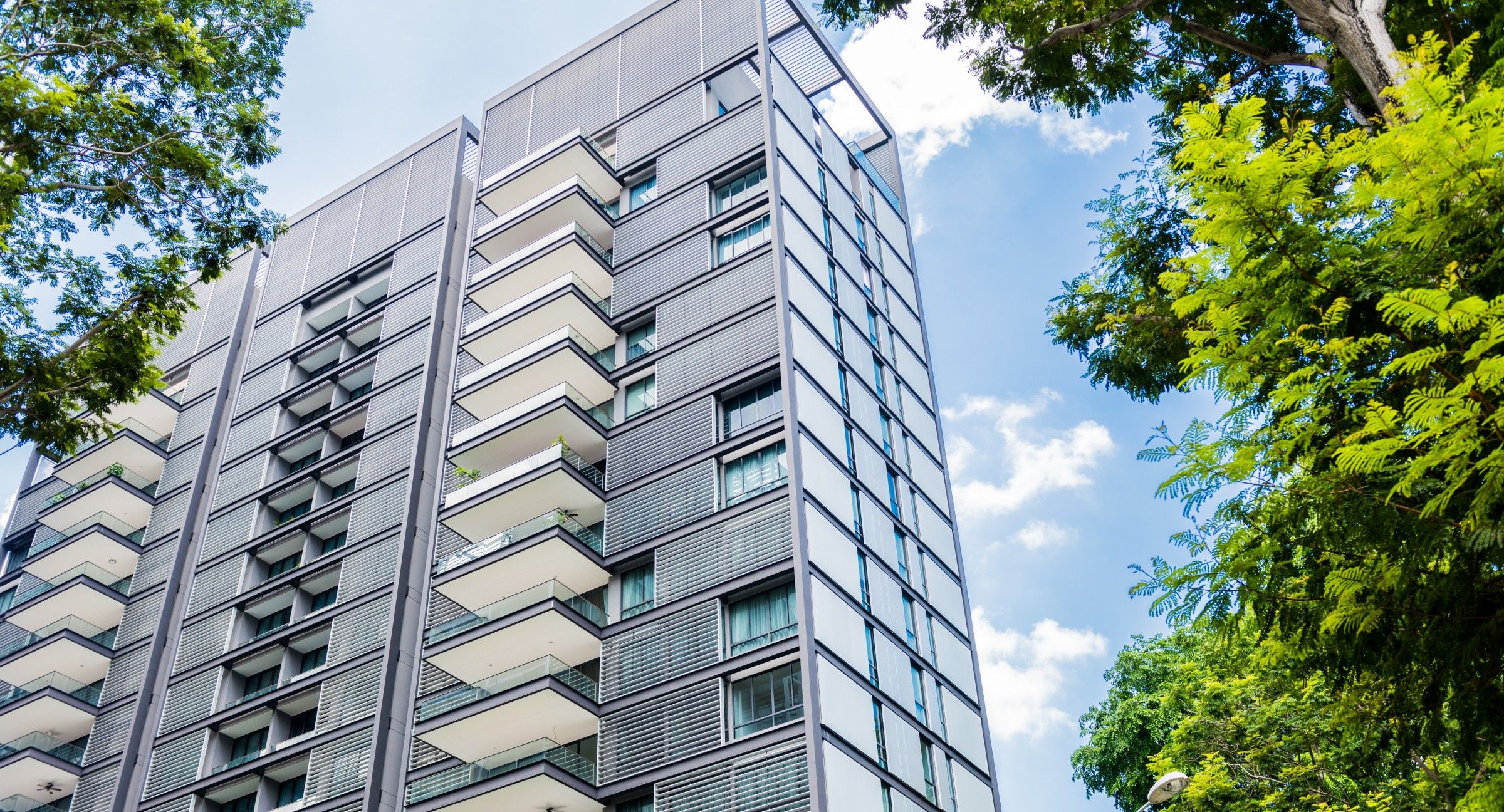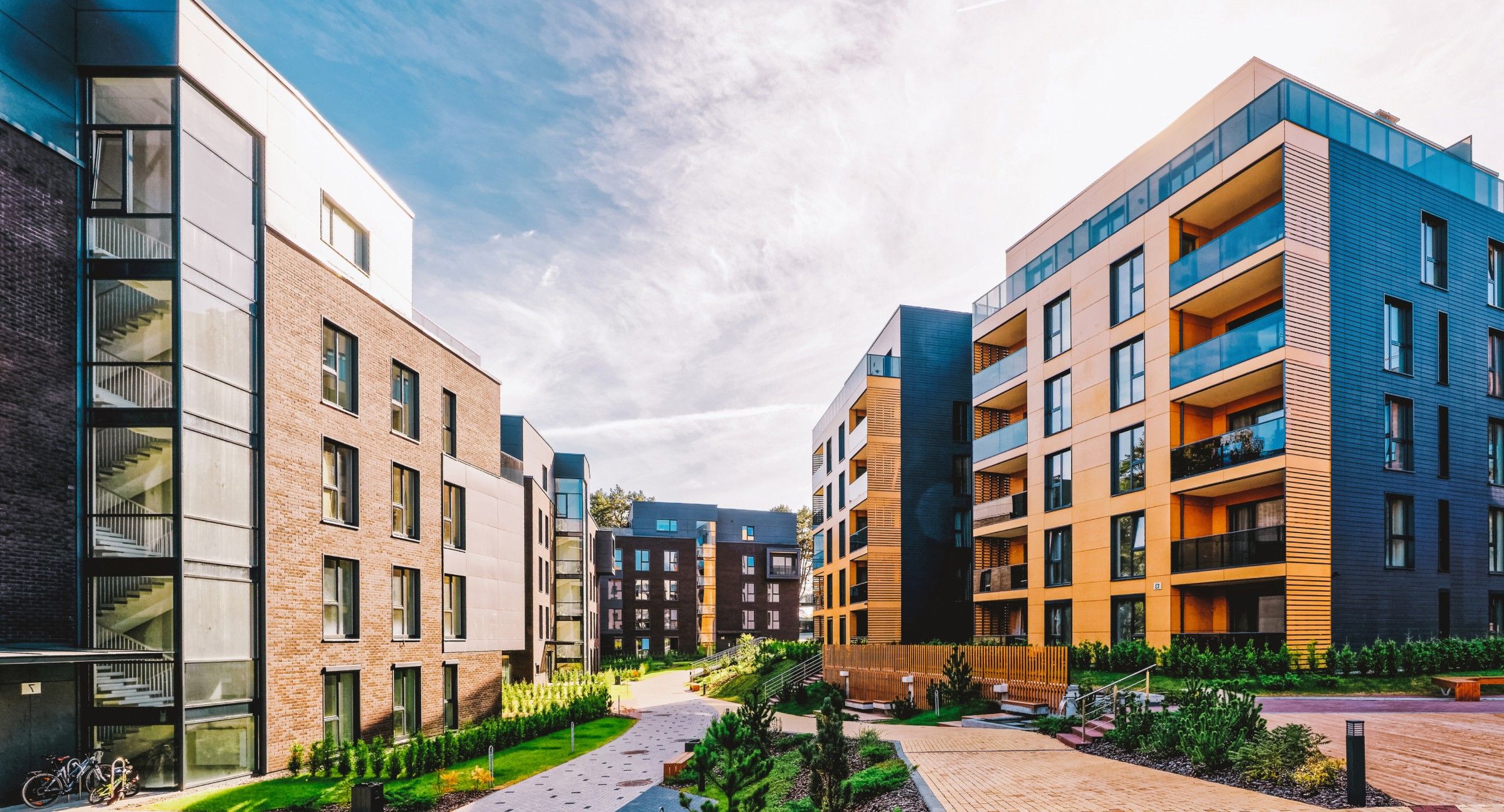10 Things You Should Know About Pre-Construction Condos

By All Access Homes
January 29, 2024

10 Things You Should Know About Pre-Construction Condos
Buying a pre-construction condo offers numerous advantages – we're strong proponents of it! Condos, whether new or existing, come with significant benefits: affordability compared to houses, modern amenities, and a low-maintenance lifestyle, offering you newfound freedom.
Opting for a brand-new condo comes with even more perks: you can customize your space to your preferences with finish and color choices, everything is pristine, and new appliances are under warranty. Plus, there's an undeniable joy in being the first to call a place home.
As you consider buying a pre-construction condo, it’s important to learn and understand what is unique to purchasing and investing in pre-construction condos.
Here are some important things that all buyers of pre-construction condos should know before entering into a transaction:
1. Not All Condos Are Created Equal
Not every new condo project on the market is a good investment opportunity. Less than 10% of new condo projects are actually good investments. This is why it is critical to research and work with a realtor specializing in pre-construction condos. This specialist will have experience in pre-construction condos and know which locations, builders (super important), and unit types are good investments for rental returns and future resale value.
Here are some quick factors to consider when looking at condo projects: builder reputation and experience, location, and transit connectivity, to name just a few.
2. Do Your Research
You will be investing a significant amount of your savings in this investment property or home. You do not want to take this lightly. It is critical to do your research thoroughly, especially on the builder, because, as with any partnership, it is important to know who you are in business with!
Your pre-construction condo specialist realtor is a valuable resource. Chances are they have worked with the builder before and can speak to their reputation and track record.
Other ways to learn more about a builder: A good place to start research is on Tarion’s website under Builder Directory.
If the development is a joint venture, it is important to research both (or more) of the builders.
Here are a few things to look for in their past developments:
- How long did it take to start construction?
- How close did they complete the building to the stated occupancy date?
If the builder has condo buildings that are already completed, book showings through the MLS system to visit the building and the condos – look at the amenities and the finishes in the suite. It is a good idea to check out the workmanship and the quality of finishes the builder provides.
When possible, speak to a past owner—someone who has been through the pre-construction process with the same builder(s) and can speak from their experience about the sales, construction, occupancy, and final closing processes.
As with every investment, there are risks; pre-construction also has risks. One of the higher risks with pre-construction developments is the possibility of the project being canceled before starting construction. This is why investing with reputable and experienced builders is important.
3. Deposit Programs are Extended and Flexible
One of the greatest advantages of investing in pre-construction condos is the extended deposit structure.
Most pre-construction condos require approximately 20% deposit of the total purchase price. This deposit down payment is often broken down into several 5% installments to be paid over the project’s construction phase, approximately 2 to 5 years (depending on the project).
Let’s look at the numbers: for a $500,000 investment, a 20% down payment would be $100,000. Not many people have that amount of cash on hand to pay upfront.
This is why investors like extended payment plans, as it allows them to plan for upcoming payments in advance. For first-time home buyers, these payment plans are very important as they give them time to save up for the upcoming payments – kind of like a forced savings plan.
Remember, you don’t need as much saved as you think!
4. Take Advantage of the 10-Day Cooling Off Period
In Ontario, every pre-construction condo purchaser has 10 calendar days to reconsider and withdraw from their purchase contract. During this 10-day cooling-off period, also known as the “rescission period,” purchasers should do the following:
(i) Secure the unit: Make the most of the 10-day period to your advantage. Once you've signed the purchase and sale agreement, you've successfully secured the unit and its price. This is particularly crucial during the initial launch phase when builders often raise prices with each new suite release. We always advise our clients that when we present a unit you like, it's a wise move to sign and secure both the unit and the price. If you take too long to decide, the unit may become unavailable, and prices are likely to have increased with no room for negotiation. So, it's a prudent choice to sign since you do have a 10-day period for consideration. If any hesitation persists or you're not entirely comfortable with the investment, you can withdraw from the purchase at any point within those 10 days.
(ii) Lawyer review: Work with a specialized real estate lawyer (in pre-construction contracts) to review the agreement of purchase sale – this is important so you are aware of any unusual clauses or costs included.
(iii) Get a mortgage pre-approval:Typically, builders provide a 30-day window for you to secure this pre-approval. However, we strongly recommend our clients to complete this process within the cooling-off period. The reason being, if for any reason you cannot obtain a mortgage pre-approval, you still have the option to withdraw from the purchase during this timeframe. Waiting until after the 10-day period expires means you'll be unable to withdraw and will enter into a firm and binding agreement with the builder.
(iv) Get post-dated cheques: We live in an era dominated by electronic transactions. However, builders and their legal teams typically require post-dated cheques for future installment payments. Take this opportunity to acquire a chequebook from your bank and submit the necessary post-dated cheques within the 10-day period. This way, you won't have to visit the sales center for each upcoming payment.
Pro tip: Set reminders to ensure that your account has sufficient funds on the due dates. Since these payments are scheduled far in the future, it's easy to overlook them. Non-sufficient funds (NSF) charges can be substantial, so it's best to avoid them.
5. Construction Delays are Inevitable
From the early sales phases to completion, the project may be 3-5 years away. Purchasers should prepare for completion with this waiting period in mind. It's important to note that construction delays are common and often inevitable. Various factors can contribute to these delays, including disruptions in the materials supply chain, labor strikes, weather-related issues, and cost-related setbacks.
We always advise our clients to expect and plan for a 6 – 8 month delay from the occupancy date that is stated on the price list you receive when you sign the contract.
Builders are within their rights under Tarion to delay closings for the project. This is included in the Tarion addendum in all purchase and sale agreements. Builders are required to communicate timelines to the purchasers as they are available. It is also a great idea to periodically visit the project site to see the construction progress and take pictures as keepsakes of your first home or investment! You could also keep in touch with the builder’s customer care department to learn more about the project’s progress.
6. Budget for Closing Costs including HST
Closing costs are due at the final closing of your pre-construction condo. The closing costs vary for each pre-construction project and are not a fixed or percentage-based figure. It is unique to each agreement, its contract inclusions, and the purchase price.
Closing costs represent out-of-pocket expenses, requiring budgeting for payment at the final closing. The good news is that you have 3-5 years to save up for them.
As of 2022, when buying a pre-construction condo, closing costs typically range from approximately $15,000 to $20,000 for a studio or 1-bedroom condo and approximately $20,000 to $40,000 for a 2-bedroom or larger condo. However, these figures can vary significantly depending on the specific condo and are not universal guidelines.
The most significant closing costs include:
(i) Land Transfer Tax: This may be the single highest expense on closing. In Toronto, it comprises both municipal and provincial components.
(ii) Development Charges or Levies: This expense can be substantial. When signing, it's advisable to negotiate with the builder to cap these charges at a maximum amount. It's important to note that development charges are subject to HST.
Additional costs encompass legal fees, utility hookups, participation in the Tarion Warranty Program, HST on appliances, contributions to the Reserve Fund, and miscellaneous fees and charges.
(iii) HST: Many developers' price lists will indicate "prices include HST." However, it's important to note that prices include HST only when you, or an immediate family member, plan to use the condo as your principal residence. If you're an investor intending to rent the condo, you must disclose this to your lawyer at the Final Closing. At that point, you can apply for an HST rebate from the CRA, which is a great benefit. Nevertheless, it's essential to budget for the HST as part of your closing costs. Please be aware that this isn't a permanent cost, as you will receive a partial or full refund.
For more detailed information on HST and condo investing, we strongly recommend consulting with your lawyer or accountant. Additionally, here is a resource for further information.
7. You Could Move in Before Final Closing
You could move in or rent your condo (if you have the Right to Lease clause in your agreement) during the Interim Occupancy Period – this is when you get the keys to your condo. However, the title for the condo has not yet been transferred to you just yet. That is because the building has to be completed, registered, and pass all required inspections before it can get to Final Closing. This is when you get title to your suite and take on a mortgage.
Until then, the builder will still be on the title, and your “mortgage” payments will actually be “occupancy fees” made to the builder until the building is complete. Your mortgage won’t kick in until Final Closing.
It is important to note that the building’s common elements will likely not be completed at this stage. The amenities will not be accessible, and the hallway and elevators may not be complete.
8. You May Able to Assign Your Condo
If you decide you no longer want to close on this condo to own it, you can assign the condo, provided that you have the assignment clause in your contract. You can ask for this clause to be included in your contract upon signing.
An assignment of a condo occurs when the original buyer sells the unit to a new buyer before completion, and the new buyer assumes the existing contract as is. However, for this assignment to be valid, the builder must provide approval and sign off on the transfer. Typically, builders allow unit assignments closer to the occupancy date.
9. Material Changes May Occur
Outlined in your purchase agreement are provisions regarding “material changes.” This clause grants the builder the authority to make alterations to the unit's floor plans or the building's amenities, among other things. Typically, if there are modifications to the interior of your unit, the builder will provide advance notice. Consequently, you may find that your unit has undergone changes from the original plan you initially agreed upon.
10. The Development Could Be Cancelled
You have probably heard in the news of a couple of developments getting canceled before the start of construction or while under construction. This could happen for several reasons. For example, the expected sales for the project may not materialize or the development approvals necessary for the project are not forthcoming.
When a cancellation occurs, it can be disappointing for the buyers. They may have purchased the condo 2-3 years ago at a lower price per square foot than the current market value.
There may be some recourse with the help of Tarion to return the buyer’s deposits.
As of January 1, 2020, all agreements of purchase and sale will include a Tarion Addendum information sheet at the front of the purchase agreement that outlines some of the key potential risks of buying a residential condominium unit in a pre-construction standard or phased condo project.
BONUS: 11. Monthly Maintenance Fees Will Increase
Maintenance fees are estimated several years in advance. It is tricky for a builder to know how much it will cost to run a building before construction. Keep that in mind and consider the maintenance fee advertised as an approximation, as the cost will change with the inflation rate, among other things. Low condo fees can be enticing when comparing condo projects to one another, but always be prepared for fees to increase over the years.
As with any real estate transaction, it's a good idea to team up with a specialized real estate agent who is experienced in buying pre-construction condos and can help you navigate the sales process and help you understand exactly what you’re getting into. Our team at All Access Homes are pre-construction specialists and ready to work with you!


